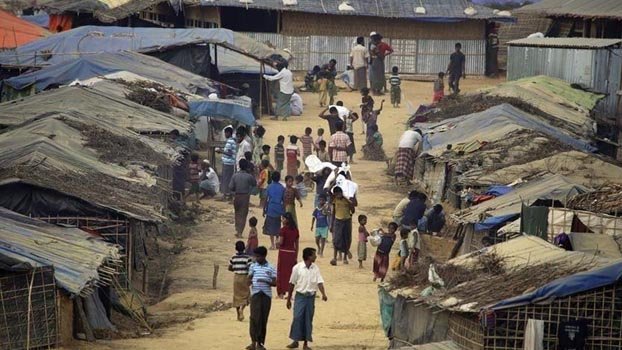Many Rohingyas found Covid-19 positive

Refugees in different Rohingya camps at Cox’s Bazar of Bangladesh have become concerned when many of them were found positive in coronavirus test.
In this circumstance, health experts have also expressed their concern fearing that infection might spread among mass people of Cox’s Bazar as well as of the country.
It should be mentioned that so far four of the Rohingya people have been identified as COVID-19 patients. In this circumstance, one of the blocks have been locked down by Refugee, Relief and Repatriation Commission authorities to prevent spreading of the deadly virus among others. Besides, the Army personnel are working there to make the lockdown successful.
Local experts said it was critically difficult to maintain social distance at the densely populated Rohingya camps.
Meanwhile, different aid groups have also warned of a looming humanitarian disaster after coronavirus was detected for the first time in the sprawling camps that host about 11 lakh Rohingya refugees in different camps at Cox’s Bazaar.
The camps, which are more densely populated than some of the world’s busiest cities, have been under lockdown since 14 March in an attempt to stop the virus from spreading.
As the number of coronavirus infections has continued to rise in Bangladesh, health experts and Rohingya community leaders have become increasingly concerned about possible outbreak among refugees. On Thursday, such fears were confirmed when the United Nations announced that an ethnic Rohingya refugee and another person had tested positive for Covid-19. Humanitarian groups warned that the virus could race through the camps, where families live with up to 10 people in a room in sweltering heat, with limited access to clean water. Households are forced to queue up to access food at communal distribution points, making social distancing impossible.
On top of overcrowding, many refugees, who fled persecution in Myanmar, have underlying health conditions or have not received standard immunisations, according to health experts.
Community members have volunteered to share information about the disease, but such awareness-raising activities have been hampered by an internet ban imposed on the camps. The blackout has made it harder for people to access reliable advice or news updates, and has fueled a sense of panic among some.
Testing began in the Cox’s Bazar district in early April and, as of Thursday, 108 refugees have been tested and four of them have been tested positive.
Across Bangladesh, the government has so far has reported 20,995 cases of Covid-19 and 314 deaths.
Dr Shamim Jahan, Save the Children’s health director in the country, said in a statement the virus already had overwhelmed health services.
It should be mentioned that there are only an estimated 2,000 ventilators in all of Bangladesh, serving a population of 160 million people. In the Rohingya refugee camps – home to more than 11 lakh people – there are no intensive care beds at this moment. The Burmese Rohingya Organisation UK said the international community needed to provide greater resources to help protect Rohingya refugees, and called on the Bangladesh government to allow humanitarian work to continue in the camps.



